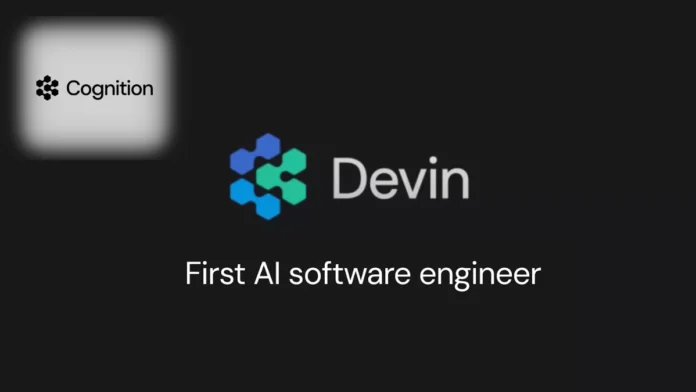It has been reported that Cognition Labs wants to become the upcoming multibillion-dollar artificially intelligent venture. The Wall Street Journal (WSJ) said on Sunday, March 31st, that the startup, creating a machine learning tool for generating code, is talking with financiers about raising funds at an asking price of up to two billion dollars.
According to the article, Cognition’s valuation would nearly double to nearly six times its previous valuation if the round got accomplished. The publication has information indicating that talks to invest in the round are underway for Silicon Valley venture firms, including Founders Fund, which is already a stakeholder.

As the use of cryptocurrencies grew, Cognition changed its focus to artificial intelligence (AI), as per the Wall Street Journal report. It introduced Devin, an AI programming tool, earlier the following month. Devin is said to be able to handle challenging coding jobs, including making unique websites independently.
According to the WSJ, some investors think Devin represents a significant advancement in artificial intelligence and has the potential to automate software development on a large scale.
The round occurs when several other AI startups want to raise their valuations significantly. For instance, this month, there were rumours that Cohere, a Canadian AI startup, was negotiating to fund $500 million, which would have increased its market value to 5 billion dollars. After raising $220 million, the business had a valuation of $2.2 billion in June of last year.
Additionally, Mistral, a French artificial intelligence developer, saw a valuation increase of almost seven times over the previous fiscal year to two billion dollars at the end of last year.

However, as PYMNTS reported this week, technology giants like Google, Microsoft, and Meta are actively building their versions of artificial intelligence large language models (LLMs), proving that they are not “standing calmly back.”
According to that report, while the largest corporations in the technology industry have an advantage, there are other contestants in the competition for dominance in artificial intelligence, as pushing the field’s boundaries necessitates significant investments in processing capacity and research expertise.
According to Gil Luria, an executive software scientist at D.A. Davidson & Corporation, working with progressively more extensive data sets is incredibly costly, which presents a barrier to developing a comprehensive fundamental model in a conversation with PYMNTS.
He went on to clarify that Microsoft’s assistance and the Azure capabilities that it offers to OpenAI access are the only reasons it can afford to accomplish this. Comprehensive models, like those used by ChatGPT, are adaptable in various fields of expertise because they have adopted enormous amounts of actual human knowledge and keep learning from the latest information.





